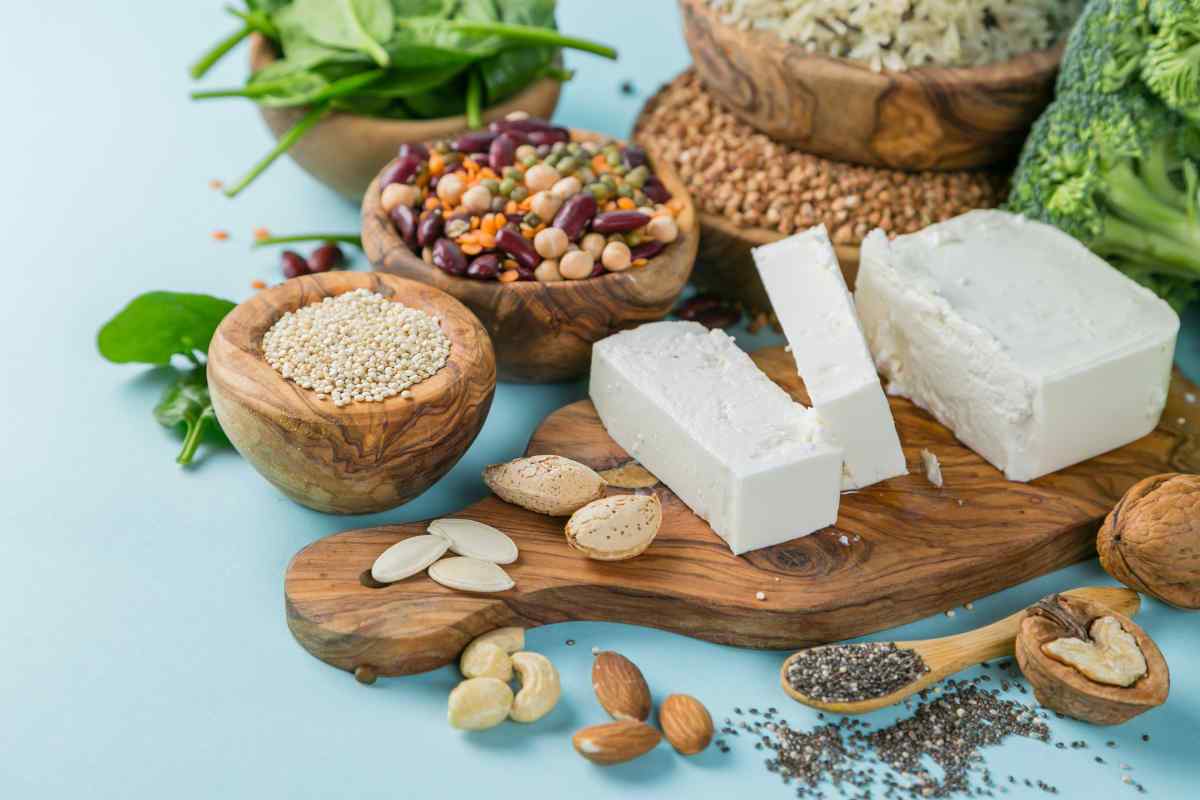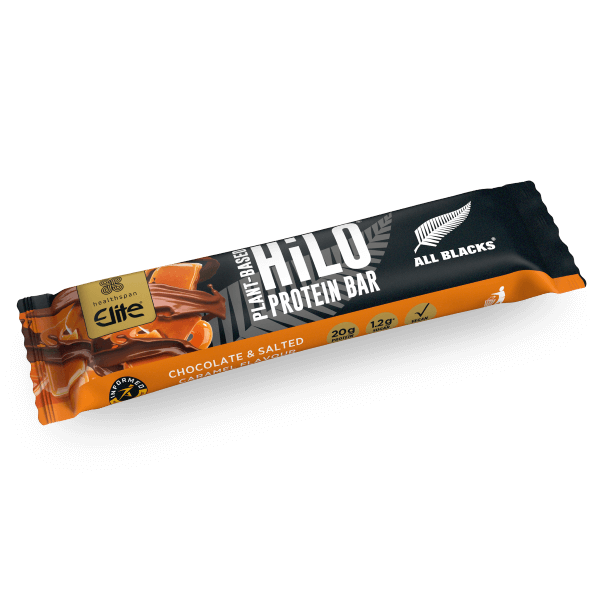Nutritionist Rob Hobson describes what protein is, why it's important, how much you need to stay healthy and how to make sure you have enough in your diet.
What is protein?
Proteins are made of amino acids: smaller molecules that make up the structure of the protein. There are 20 different amino acids. Eleven of these can be made in the body, and nine need to come from the diet. These nine proteins that cannot be made in the body and must be ingested are called 'essential proteins'.
What does protein do?
Protein has many functions and is required for the growth, repair, and synthesis of muscle, bone, tendons, skin, enzymes, hormones, and other body components.
The National Diet and Nutrition Survey (2020) has shown that, on average, we eat more than enough protein, with men consuming 87.4g and women 66.6g daily.1 However, there are other factors that affect how much protein individuals require.
What factors affect protein needs?
Generally, protein requirements are consistent within age groups, but certain factors can influence individual needs.
Age
Young infants and children need more protein than adults. These increased needs are due to growth and development, as protein is essential for building and repairing tissues in the body. Protein is also required to make molecules critical for this development, such as enzymes and hormones.
During adulthood, protein needs for the average healthy adult decrease slightly, and increase again in older age to support muscle mass and bone health.
Sex
The protein needs of men are typically higher than for women, which is a direct result of men's greater muscle mass. Hormones also play a role, as testosterone, the primary male sex hormone, promotes muscle growth and development, increasing protein demands in the male body.
Body composition
If you have a greater muscle mass, you may require more protein to support the growth and repair of this tissue. Athletes have a higher requirement for protein, especially in power and strength sports such as competitive bodybuilding, where competitors must gain lean muscle mass.
Certain sports also require athletes, such as boxers, to increase their muscle mass and lose fat to make weight in their category. This often involves increased protein intake to help adjust body composition in their favour.
Physical Activity
High levels of physical activity can increase the need for protein to help muscles recover after exercise. Protein intakes are set higher for athletes, and recommended intakes differ depending on the sport.
Health status
Medications and disease can increase the need for protein, as can recovery from surgery or injury. Diseases such as cancer, severe infections or burns can increase the demand for protein to help the body to heal and repair tissue.
People with kidney disease may be advised to monitor their protein intake to lessen the load on the organs. Some digestive disorders, such as ulcerative colitis, can make it difficult for people to absorb gut nutrients, including protein.
Anti-inflammatory medications such as corticosteroids can also increase protein breakdown and reduce protein synthesis, which may result in muscle wastage if not appropriately managed.
Pregnancy and breastfeeding
During pregnancy, protein is required to support the growth and development of the foetus, which puts an increased demand on the mother's body. Several changes that affect protein metabolism occur in the body to accommodate the baby, including increased blood volume, uterus expansion and placental growth.
How many grams of protein do I need in a day?
There are established protein intake guidelines for different age groups. These are expressed as recommended nutrient intake, or RNI. RNI is the amount needed to meet the nutrient needs of 97.5% of the population.
Infants and children
Infants require about 1.5g of protein per kg of bodyweight per day, and children need around 1 gram per kilogram. The RNI for infants aged 1-3 years is 14.5g daily, increasing to 28.3g daily in older children.
Adolescents and adults
Adolescents and adults require 0.8g per kg of bodyweight each day. The RNI for protein intake in healthy people aged 19-50 is 55.5g daily for men and 45g daily for women. The protein needs of athletes differ; depending on their sport, recommended intakes vary between 1.2g and 2g per kg bodyweight daily.2
Pregnancy and breastfeeding
Pregnant and breastfeeding women need additional protein to support their baby's growth and development. The current guidelines suggest an extra 6g of protein each day.
Older adults
Older adults may need more protein to help support good muscle mass and bone density. The recommended daily intake is between 1 and 1.2g per kg of bodyweight. The RNI for women over 50 increases slightly to 46.5g daily.
Is it challenging to get enough protein in your diet?
Getting enough protein in the diet is easy, and most people consume more than they need. Vegans may require more effort to plan their protein intake, which is often more about quality of protein than quantity, to ensure they get a good balance of amino acids. This can be achieved by eating a variety of protein sources across the day.
People who are dieting to lose weight will naturally be eating less food and should ensure they include a protein source with every meal to help maintain muscle mass.
The body can only assimilate around 25g of protein in one sitting. Rather than trying to eat your protein all at once, it is better to balance your meals around complex carbohydrates and vegetables high in fibre plus a little healthy fat, and spread your protein intake throughout the day.
What are the best sources of protein?
The best protein sources are all from animals, and include meat, fish, and eggs. These sources of protein contain all the essential amino acids. The best plant sources of protein are soya and pea, but many other foods contain this nutrient, including nuts, seeds, beans, pulses, and oats. Carbohydrate foods such as bread and pasta also contain small amounts of protein, so contribute to your daily intake.

Those following plant-based diets should choose their food carefully to make sure they get enough high-quality protein.
- 2 eggs = 13g protein
- 50g porridge oats made up with 180ml skimmed milk = 12g protein
- 100g chicken breast (1 small) = 30g protein
- 1 can tuna = 32g protein
- 100g cooked prawns = 15g protein
- 100g Quorn mince = 13g protein
- 100g beef mince = 30g protein
- 100g tofu = 12g protein
- 120g fresh salmon (1 small fillet) = 21g protein
- 125g plain yoghurt = 7g protein
- 100g cottage cheese = 9g protein
- 250ml skimmed milk = 8g protein
Do I need a protein shake or bar?
You can get all the protein you need from your diet, but protein shakes and bars offer a convenient way to access this nutrient. Protein shakes and bars are helpful after a strength-based training session, as they take very little time to prepare, and you can consume them on the move. These protein products also make good filling snacks, but look for ones that are low in sugar.
Protein is essential for good health, and needs differ with age. Lifestyle may increase the demand for protein, but this is down to the individual. Most people don't need to worry about their protein intake, but if you belong to one of the categories above, consider adding more protein to your diet with food, protein shakes or bars.

Elite All Blacks Plant-Based HiLo Protein Bar
Delicious protein bars packed with 20g protein
- Chocolate and Salted Caramel, Black Forest Gateau and White Chocolate Raspberry flavours
- 6.7g fibre per bar, only 3.5g sugar
1Public Health England and Food Standards Agency. (2020). National Diet and Nutrition Survey Results from Years 9 to 11 (2018/2019).
2Thomas, D. T., Erdman, K. A., & Burke, L. M. (2016). American College of Sports Medicine Joint Position Statement. Nutrition and Athletic Performance, Medicine and science in sports and exercise, 48(3), 543-568.







